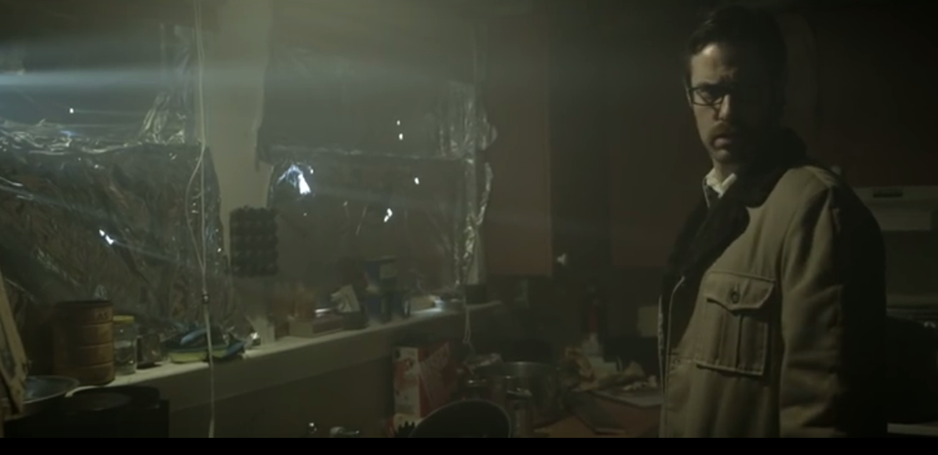
Pod (Movie Review)
In Pod, the question facing a pair of siblings is whether there really is a monster in the basement of their lake house or if that monster is another of their brother’s paranoid delusions. Considering their brother Martin’s (Brian Morvant) history of mental illness, Ed (Dean Cates) and Lyla (Lauren Ashley Carter) are initially both firmly in the “it’s all in his head” camp. However, after spending some time in the lake house with him, their certainty begins to erode.
There’s a lot of talking and arguing going on in Pod. That’s to be expected, seeing as though the movie is mostly just one big intervention staged by Ed and Lyla to get their brother the help they feel he needs. They decide this is necessary after Ed receives an ominous call from Martin warning him to stay away from the lake house. Naturally this convinces Ed that the lake house is exactly where he needs to go and he brings along Lyla to be his number two. Once they arrive, they find Martin locked in the grips of a massive psychotic episode. He believes he’s trapped a monstrous, government-created super-solider in the basement and has lined the house with tin foil and torn out several of his own teeth to keep the feds from tracking him. Worse yet is that he’s armed, making him a clear threat to not only himself, but his siblings as well.
For much of its all-too-brief 78 minute runtime, the film leads us towards the conclusion that the basement is 100% monster-free. It’s not until near the hour mark that it gives any credence to the idea that Martin may be right. The movie’s title and much of its marketing at least appear to hint at the supernatural, but its true antagonist – for roughly two of its three acts – is Martin and what his condition may cause him to do. It’s important to adjust expectations accordingly.
The upside of a 78 minute runtime is that, despite all of the talking, the film never really has a chance to drag. Writer/director Mickey Keating unfolds the film’s central mystery slowly but skillfully. He keeps things interesting to look at by leveraging a blue/red color pallet and alternating between long tracking shots and quick cuts. These techniques, while a clever bit of style, also embody Martin’s unpredictable nature, which can be tranquil one minute and highly chaotic the next.
The downside to the runtime is Ed and Lyla are just sort of there. Pod gives us one truly memorable character – Martin. Morvant nails his character, imbuing him with enough erratic menace to make him threatening but not enough that he totally loses the audience’s sympathies. Sadly, through no fault of the actors playing them, Ed and Lyla feel very one note in comparison. Ed is the protector and Lyla is … something. Ed says he brings her along to keep Martin calm, however, it’s revealed that she hasn’t spoken to her brother since she was a child and she ends up being a frequent target of Martin’s outbursts. Neither character gets any depth or backstory, leaving it all up to the actors to make viewers care about them.
Pod contains a few scares, shocks, and some graphic moments. It has a fun, twisty climax, although one character’s “surprise” fate was clearly telegraphed by many classic horror films which came before. Morvant gives a standout performance and Keating’s work behind the camera is also excellent, but not enough attention was given to the film’s other components. Pod is an uneven movie, but with the right mindset going in, it’s still one that is worth watching.

